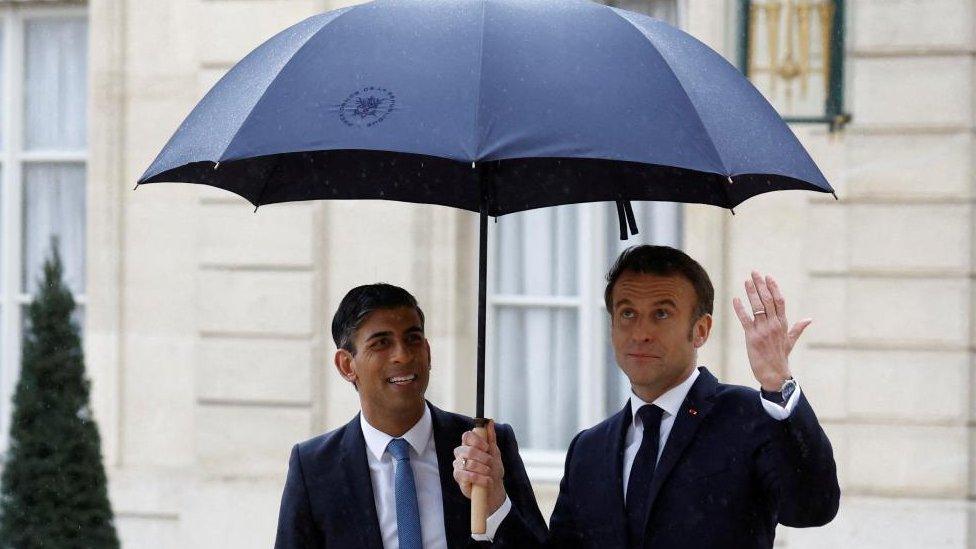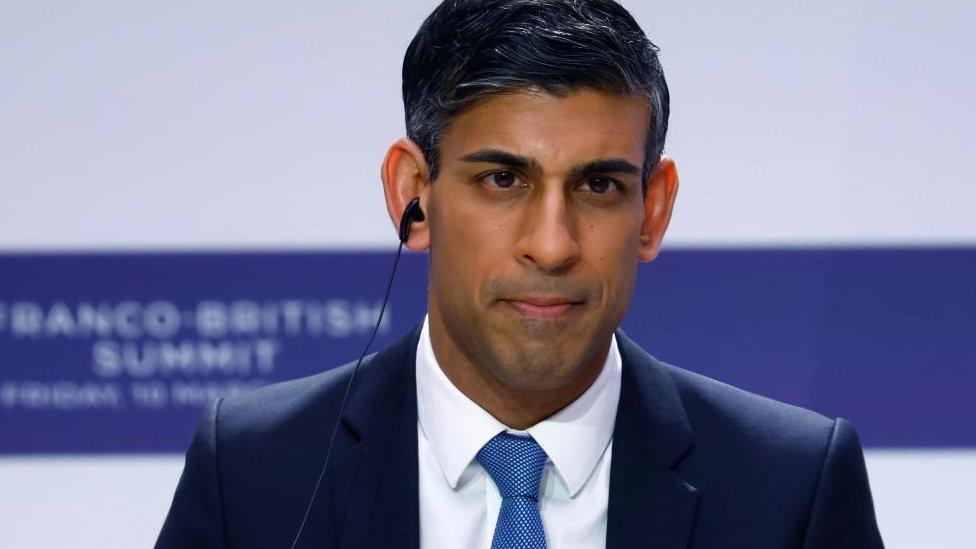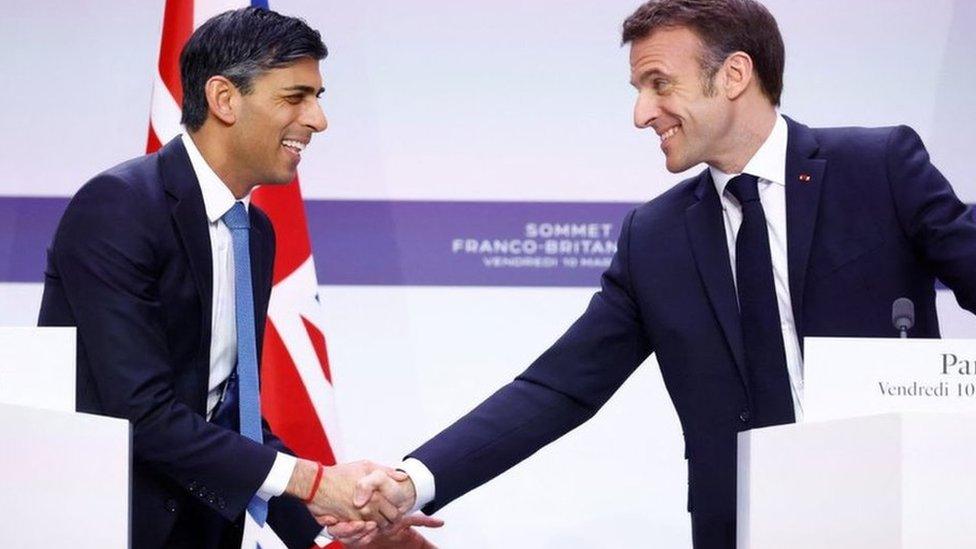Can Sunak-Macron bromance help stop the boats?
- Published

Wandering onto the crunch of the courtyard gravel of the Elysee Palace in Paris, the president and the prime minister shared smiles and a brolly.
It was the image that said more than many more words had sought to convey.
These leaders of similar age and similar background clearly get on; that word "bromance" is going to get a good workout in the write ups of the Franco-British summit.
To focus on the chemistry between political leaders may feel superficial.
But relationships in diplomacy really matter, particularly when the contrast is so striking.
Last summer, the then Foreign Secretary Liz Truss, who would become prime minister weeks later, said the "jury is still out" when asked if President Macron was a friend or foe.
However throwaway or in jest that remark may have been, it is impossible not to notice the contrast now.
Mr Sunak has put great store in what he sees as restoring the UK as an honest broker and reliable ally on the world stage after the chaos of Ms Truss's brief premiership and what might be gently described as the idiosyncrasies of Boris Johnson.
Mr Johnson and President Macron were a million miles apart on Brexit.
But, remember, so are the president and Mr Sunak.
Mr Macron pointedly claimed the implications of the UK's departure from the European Union had been "underestimated" by some of its advocates.
Mr Sunak was an early backer of Brexit.
But diplomats often reflect privately that many European leaders struggled to trust Mr Johnson as prime minister.
Mr Sunak is working hard to attempt to ensure that is no longer the case now he is in the job.
His calculation is that it is a necessary but not necessarily sufficient approach to achieve his political objectives, as well as protective, or perhaps restorative, of the UK's reputation worldwide.

So, beyond the personality stuff, let's take a look at precisely what has come of this summit.
There were important discussions between two allies about Ukraine and China.
But the most politically potent theme for Mr Sunak was small boat crossings.
For a man who has five political priorities, one of which is stopping the boats, doing something to stop at least some of them really matters.
This involves giving France almost £500m over the next few years.
And at least some of it will not deliver anything quickly - the new detention centre will be years in the making.
Downing Street think the funding they had already allocated was good value for money with tangible benefits.
And so their logic is more could deliver more.
The problem for them is whatever benefits they can point to - crossings that would have otherwise happened - the numbers have continued to spiral.
And that promise is clear cut.
Stop the boats.
Why on earth would a political leader shackle themselves to such a stark promise when this is a complex, international, diplomatically fraught, politically risky issue?
When I put this to one well placed minister, they said the calculation was any caveating or diluting would have sounded pathetic, and they would rather their ambition be clear cut, even if the delivery falls short.
But there is still a difference between a considerable reduction and no reduction at all.
Or the numbers continuing to climb.
Mr Sunak repeatedly pointed out to us at this summit that there is "no one silver bullet" as he puts it to resolve the issue of migrants crossing the Channel in small boats.
But resolve it is what he has promised to do.
And so the political jeopardy for the prime minister is simple: anything short of that will be seen by critics as a transparent failure.
His political reputation, at least in part, rests on how well he does.
- Published10 March 2023
